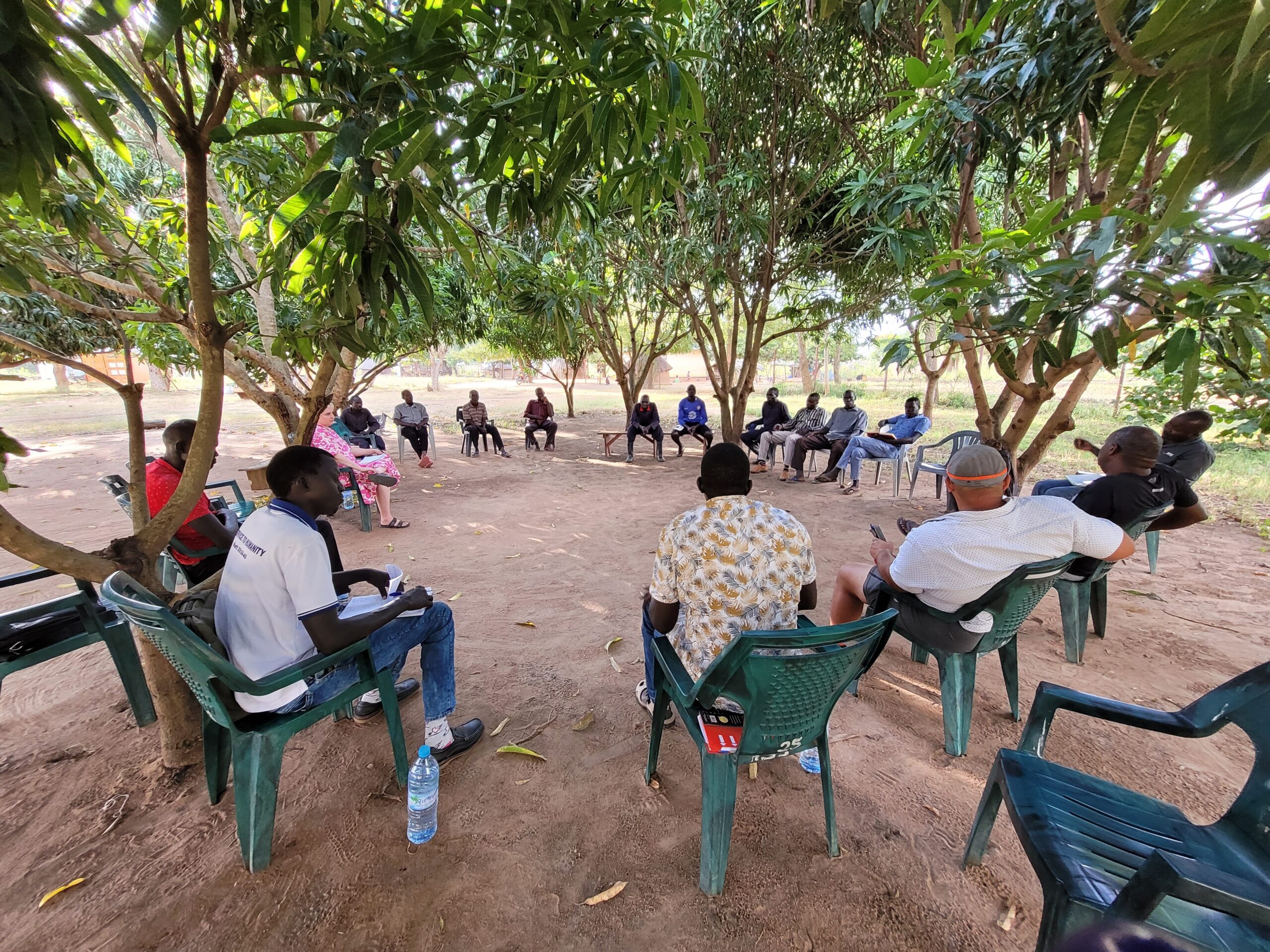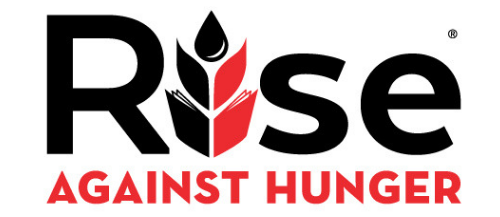Supporting Impact on the Ground with Our Site Visit to South Sudan
For the children at Hope for South Sudan, their school is not just a place for education.
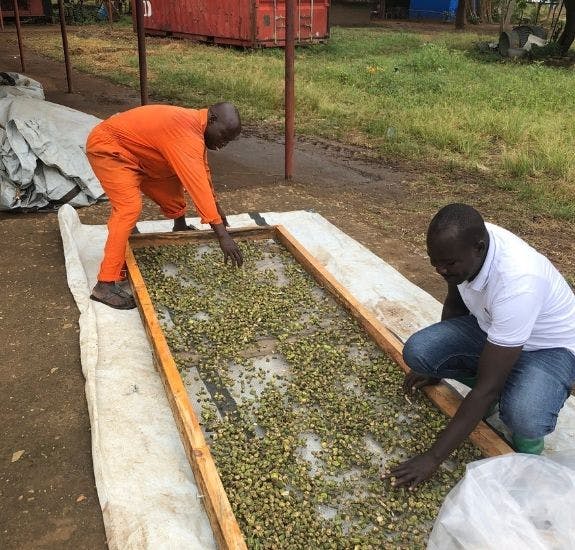
For the children at Hope for South Sudan, their school is not just a place for education. Located outside of the city of Torit, this residential school and orphanage is also the children’s home, their source of family and food, and a place for building relationships and skills for lifelong success. Surrounded by conflict from the aftermath of South Sudan’s civil war, Hope for South Sudan was established by our partner Lift Up the Vulnerable, described in an interview with their CEO Audrey Moore as an organization that uses a “holistic empowerment model that prevents trafficking, violence and exploitation, and enables the world’s most at-risk children and women to access personal and economic opportunities that lead to independence. Rise Against Hunger partners with Lift Up the Vulnerable to provide the next step of security — food security — for these children and the community.
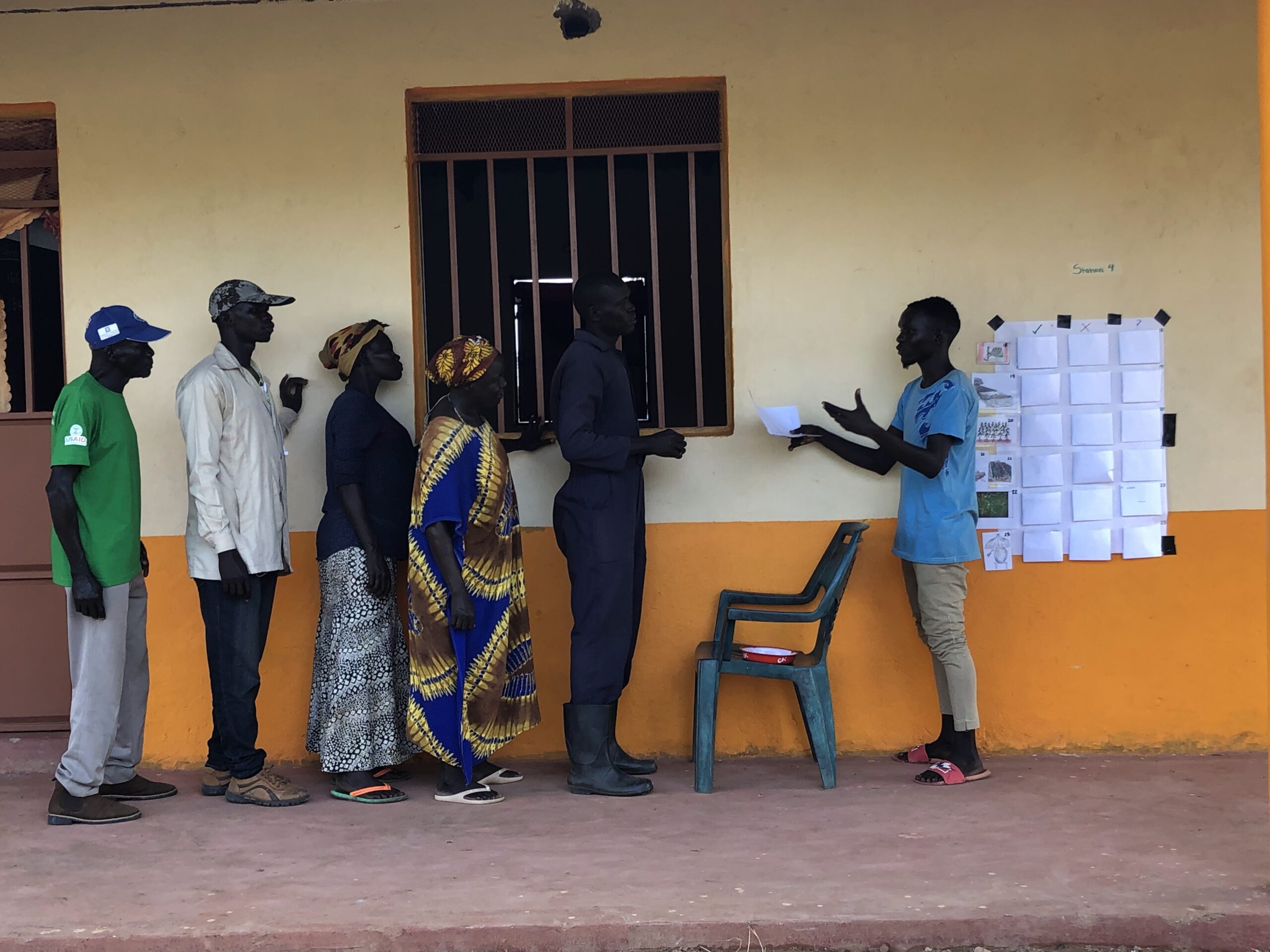
Rise Against Hunger initially began supporting Hope for South Sudan by sending one container of meals in 2020. But the school also desired a path to growing their own food and becoming self-reliant. To support the school’s goals, Rise Against Hunger worked with the local staff to develop Empowering Leaders through Nutrition-Smart Agriculture, a program that would build the school’s self-reliance through increased agricultural production with the aim of expanding empowerment to the surrounding communities. The program, one of Rise Against Hunger’s Empowering Communities projects, was launched later in 2020. As the project is implemented, evaluation of performance and impact are crucial to ensure the five-year project and Hope for South Sudan’s long-term goals are achieved. Therefore, one year into the project, three Rise Against Hunger team members — Bryan Pride, Director of Technical Programming; Chelsie Azevedo, Nutrition Technical Advisor; and Maria Omulubi, Mickey Leland Fellow — traveled to South Sudan in November 2021 for a site visit.
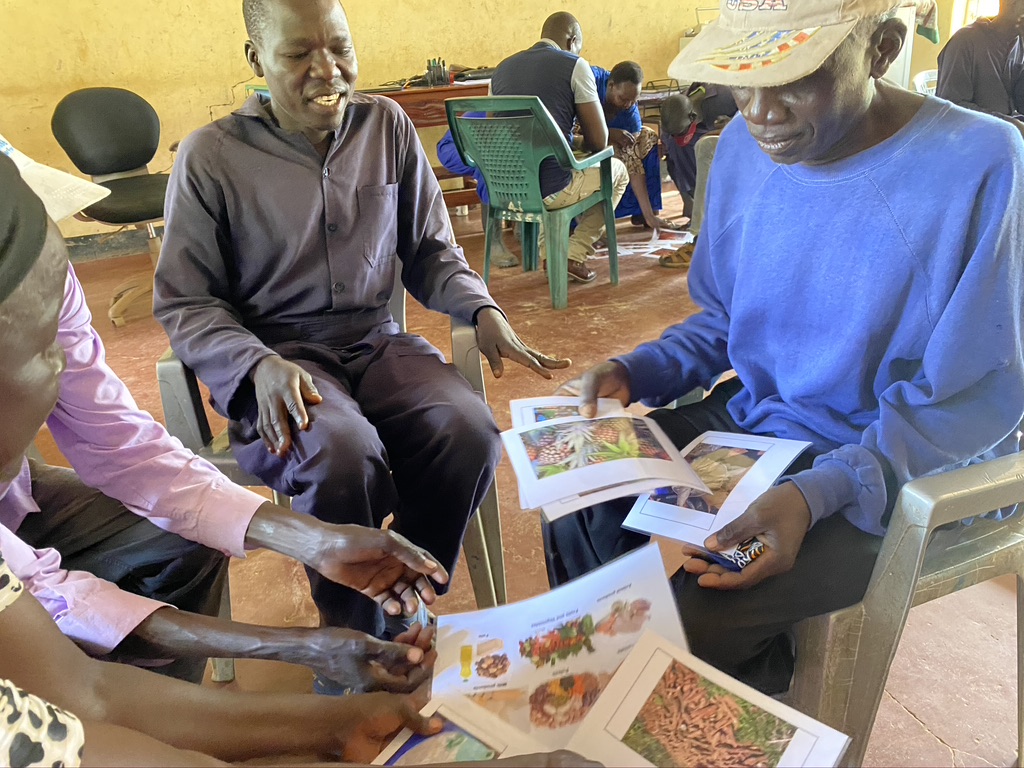
During this site visit, our team facilitated training on nutrition and the body, food groups, planning menus, cooking demonstrations and knife handling skills. These trainings contribute to the overall capacity of staff to ensure knowledge and confidence in identifying and preparing nutritious foods for children to reach an improved nutritional status.
We also worked with the Hope for South Sudan staff to strengthen methods and tools that support the Empowering Leaders through Nutrition-Smart Agriculture project. We supported their staff in the development of a Knowledge Attitude Practice survey to be used in monitoring the impact of the project. This survey helps the project team track changes in the knowledge of technical areas, practicing of desired behaviors and attitudes toward those behaviors. The Rise Against Hunger team and Hope for South Sudan staff worked together to develop improved post-harvest loss methods, including food solar dryers and updated seed and harvest storage to reduce pest infestations, in order to prepare for the upcoming record-breaking harvest later this year. There were also many collaboration sessions with Lift Up the Vulnerable and Hope for South Sudan staff to map out future plans for the project and determine what success will look like year over year. This planning ensured the continuation of a unified approach moving forward, which will help Hope for South Sudan and the surrounding community become more food and nutrition secure.
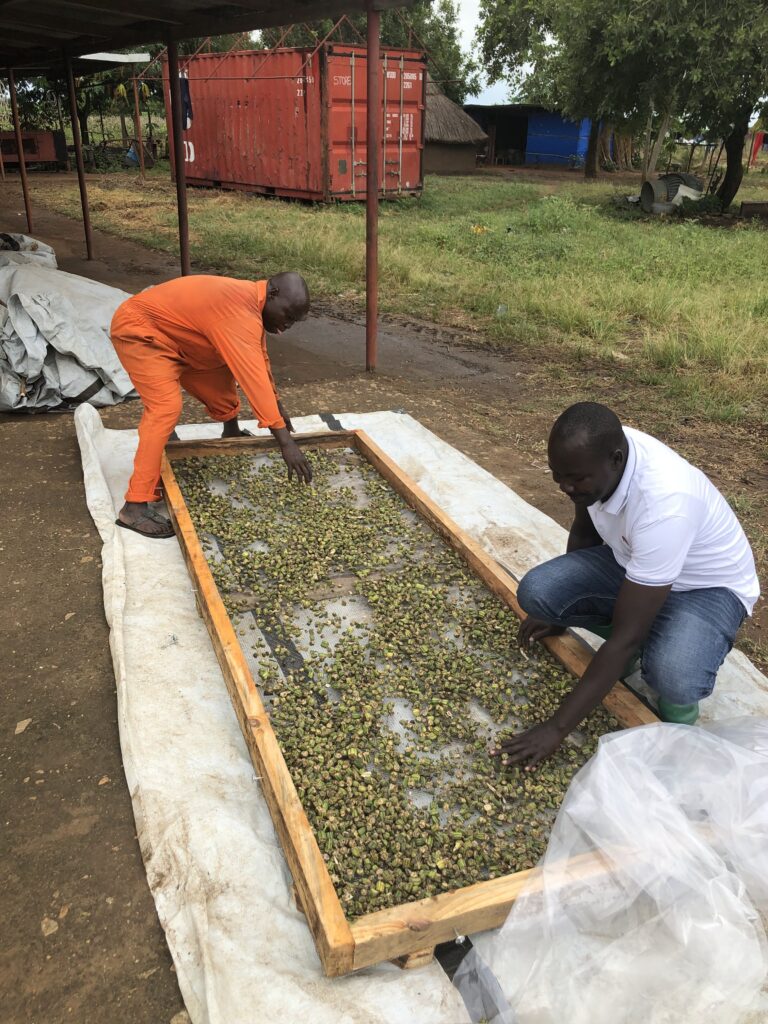

We’ve worked closely with Lift Up the Vulnerable and Hope for South Sudan staff to implement the project, but during our time on-site, it was also important for us to hear firsthand from the Hope for South Sudan staff about the community’s successes so far. Farm Manager Alex Opira, said, “Originally, people didn’t know the best methods of producing food and believed the soil to be poor, but after increasing their knowledge, their attitudes changed.” These behavior changes contributed to increased crop yields. In addition to the increased agricultural production, Stella Ahasa, Child Welfare Coordinator, also told us that their monthly sick reports are seeing record lows. She said, “These children are the healthiest they’ve ever been thanks to the diversified menu and malnutrition management system from the Empowering Leaders through Nutrition-Smart Agriculture project.” Eggplant is one of the new crops being grown and consumed by the children, and Stella said the new foods are causing the children to come running at meal time!
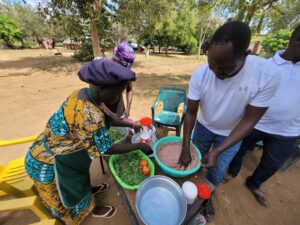
Since the site visit, activities are on track, including the completion of fish pond construction, cooking demonstrations to staff for new menu items and improved storage conditions for seeds and grains. As Empowering Leaders through Nutrition-Smart Agriculture progresses, the project will primarily focus this year on deepening the impact at the school and preparing Hope for South Sudan to lead a Farmer Field School in 2023. The Farmer Field School, focusing on agriculture and nutrition skills and training, will expand the excitement and motivation already seen at Hope for South Sudan to support increased food security in the surrounding communities as well.
Hope for South Sudan’s director, Peter Lomago, describes the school as a safe haven for children, and increasing its self-sufficiency, dietary diversity and crop production through this project will enable it to continue being so. We’ll be sharing more progress as the Empowering Leaders through Nutrition-Smart Agriculture project continues, so stay tuned!
